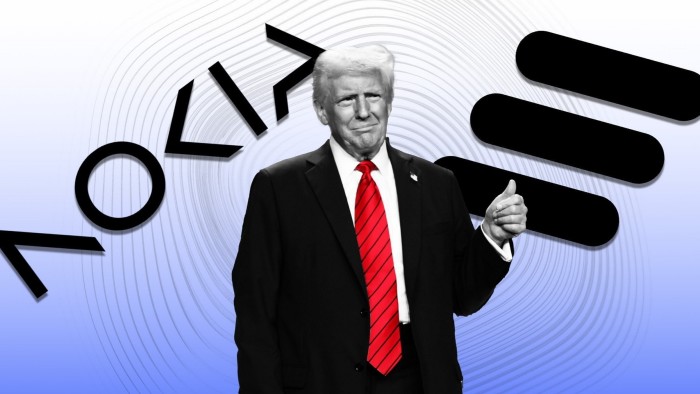Could Trump’s Revival of Nokia or Ericsson Plans Reshape Tech Landscape?
As speculation swirls around Donald Trump’s potential proposal to acquire tech giants Nokia or Ericsson, industry experts are weighing in on the implications for U.S. technology and global competition. This move could potentially reshape the telecommunications landscape, impacting everything from 5G deployment to competition with China. In this article, we’ll explore the possible motivations behind this acquisition, the implications it may have for the tech industry, and what it could mean for the future of telecommunications.
The Context of Trump’s Proposal
In recent months, former President Donald Trump has hinted at a bold initiative to rejuvenate American technology by acquiring foreign companies like Nokia or Ericsson. Both companies have significant stakes in global telecommunications infrastructure, particularly in the rollout of 5G technology, which is critical for future connectivity and innovation.
The context of this proposal is crucial. The United States has been in a fierce competition with China, especially in technology and telecommunications. China’s Huawei has emerged as a dominant player in the 5G space, raising national security concerns and prompting calls for a stronger U.S. presence in this sector. Trump’s focus on Nokia and Ericsson may stem from a desire to bolster American competitiveness against such foreign threats.
Understanding Nokia and Ericsson’s Role in 5G
Nokia and Ericsson are two of the key players in the global telecommunications market, particularly in advancing 5G technology. Here’s a brief overview of their contributions:
- Nokia: With a comprehensive portfolio that includes network infrastructure and software, Nokia is at the forefront of 5G deployment across Europe and North America. Their innovations in radio technology and network management have set standards in the industry.
- Ericsson: A leader in telecommunications equipment and services, Ericsson has been instrumental in implementing 5G networks worldwide. Their focus on cloud-native technology and software-defined networking positions them as a crucial player in the telecommunications ecosystem.
The revival of these companies under U.S. ownership could enhance their capabilities and allow for greater integration of American technology and innovation into global networks.
The Potential Benefits of Acquiring Nokia or Ericsson
Should Trump’s plans materialize, the acquisition of Nokia or Ericsson could yield several benefits:
- Strengthening National Security: By bringing these companies under U.S. control, the government could mitigate concerns about foreign entities accessing sensitive information and infrastructure.
- Enhancing Competitive Edge: This acquisition could pave the way for innovations that keep the U.S. at the forefront of telecommunications technology, specifically in 5G and beyond.
- Creating American Jobs: Revitalizing Nokia or Ericsson’s operations in the U.S. could lead to significant job creation within the tech and telecommunications sectors.
- Encouraging Innovation: With strong ties to American universities and research institutions, U.S.-owned companies may drive more innovation and technology advancement.
Challenges and Considerations
However, the potential acquisition is not without its challenges and considerations:
- Regulatory Hurdles: Any acquisition of this magnitude would likely face intense scrutiny from regulatory bodies, including antitrust investigations. The government would need to demonstrate that the acquisition does not stifle competition.
- Integration Issues: Merging operations, cultures, and technologies from different companies can be complex and may result in operational inefficiencies if not managed well.
- Global Market Reaction: The global telecommunications market operates on an interconnected basis. Such a move may provoke backlash from allies and competitors alike, potentially leading to trade tensions.
Global Implications of a U.S.-Owned Nokia or Ericsson
The implications of a successful acquisition extend well beyond U.S. borders. A U.S.-owned Nokia or Ericsson could reshape the global telecommunications landscape in several ways:
- Shifting Global Power Dynamics: The acquisition could alter the current balance of power in telecommunications, especially against competitors like Huawei, ZTE, and other emerging players.
- Increased Investment in R&D: With the backing of the U.S. government, these companies could see increased investment in research and development, leading to more innovative technologies and solutions.
- Impact on Supply Chains: A U.S. acquisition could encourage a shift in supply chains, with more components sourced domestically, which may have long-term economic benefits for the U.S.
Conclusion: A New Dawn for Telecommunications?
As the tech landscape continues to evolve, the potential revival of Nokia or Ericsson under Donald Trump’s leadership could mark a significant turning point in the telecommunications industry. While there are undeniable benefits to such a move, including enhanced national security and increased innovation, the challenges and global implications cannot be overlooked.
Ultimately, the success of this initiative would depend on careful planning, effective management, and a commitment to fostering competition rather than stifling it. As we move forward, the telecommunications sector must navigate a complex web of global relationships, regulatory frameworks, and technological advancements. Only time will reveal whether Trump’s plans can indeed reshape the tech landscape and secure a competitive edge for the United States in the global arena.
See more Future Tech Daily

